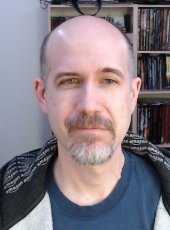
Aaron Dykstra '00
Amazon.com
Prime Video's Global Application Experience
What is your fondest memory of your time in the CS department
In general, most of my memories from Tech are in the dorms and working with the theater program. But within the Computer Science program, I have fond memories of the computer labs being about half-full during most weeks in the quarter, except the 48 hours before a project was due. During that time, it was near impossible to get a computer. You ended up trying to work out deals with folks so that they would take a nap and you would trade one of the pizza boxes back to them so that you both could maximize computer time. Those times of sitting and getting help and helping others were some of the best ways to learn about how the real world ends up working. It wasn't a zero-sum game, but everyone was in the same boat and needed to learn how it all works.
How has your education impacted your career?
The education I received at Tech has benefited me in that it's well rounded. I took the opportunity to take courses on graphics, advanced theoretical courses, and also the basic fundamentals. In addition, I also grabbed classes in the theater.
In my career, I have needed to be knowledgeable in multiple areas of machine learning, client-side UX design, and high scale services. Without a deep and broad understanding, many of those areas I owned would have failed. For instance, when we were developing a recommender service, we needed to really understand how to efficiently store that information in memory and also not completely overwhelm the JVM in garbage collection. I was able to apply the things I learned at Tech to ensure that we provided the most scalable solution we could.
In terms of my theater experience, it has been useful when I need to present our business and technical needs confidently. Recently, the company has begun to look at our resilient systems across geographic regions instead of just with multiple data centers. I was able to propose a solution and educate our leaders about the solution, including the risks that come with it. I was also able to teach our engineers what to think about for their solutions and how best to verify that we don't have regressions. And all that comes back to learning and understanding CAP theorem, which comes from those after class discussions about the '98 paper we had back at Tech.
Aaron participates in the CS1000 Alumni Assignment project where alumni correspond with first-year computer science students and answer questions they have about the school, the program, the industry, or just life in general at Michigan Tech.